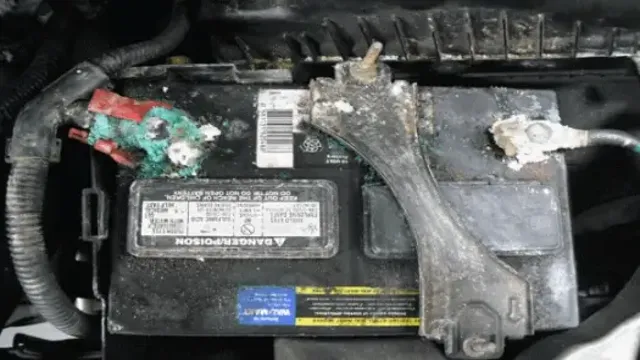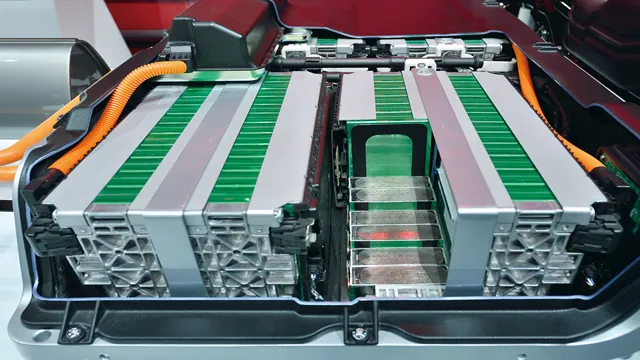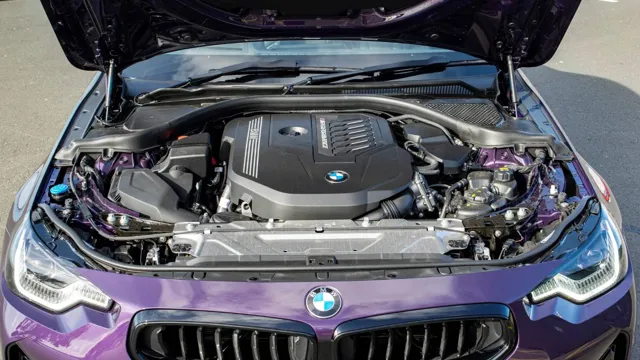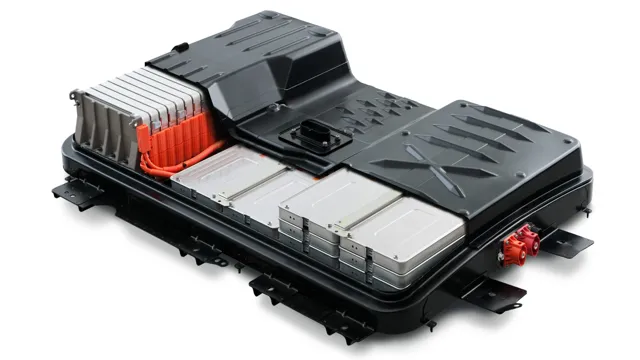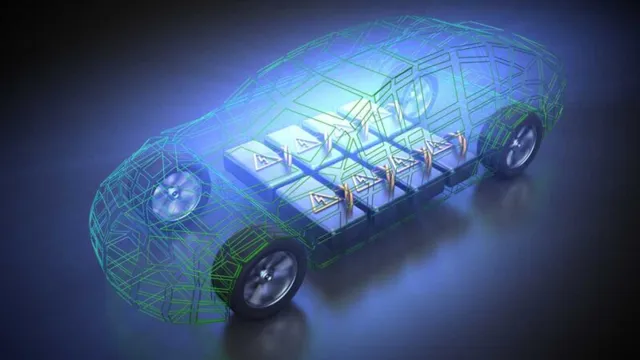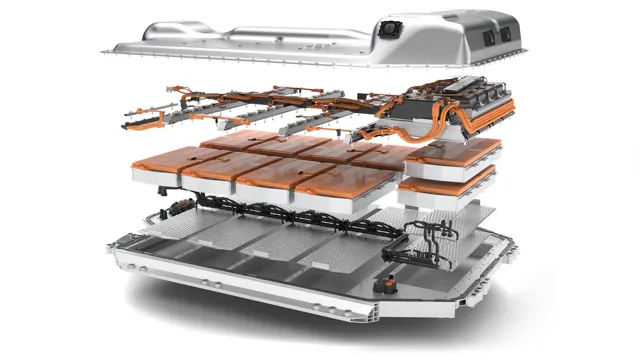Shocking Discovery: Can a New Battery Trigger Car Electrical Issues?
Your car battery has finally given up, and you decide to replace it with a brand new one. You’re thinking it’s going to solve all your problems and make your car run smoothly again. However, don’t be surprised if you run into new issues with your new battery.
It doesn’t necessarily mean you made the wrong purchase or that the battery is faulty; sometimes, it’s just a matter of understanding how batteries work and how they interact with other components of your vehicle. One of the most common issues that you might encounter with a new battery is the “parasitic drain.” This happens when there are electrical components in your car that continue to consume power even when the engine is off, slowly draining the battery over time.
It can be difficult to detect, but if you notice your battery dying quickly or having trouble starting your car, it’s worth investigating. Another issue that could arise is related to the alternator. The alternator is responsible for charging the battery while the engine is running, and if it fails to do so, your battery won’t last as long as it should.
It’s a good idea to have your alternator checked if you notice any issues with your new battery. Lastly, it’s important to note that not all batteries are created equal. There are different types of batteries with varying characteristics, such as lead-acid, lithium-ion, and AGM (absorbent glass mat) batteries.
Each type has its own pros and cons, and it’s important to choose the right one for your vehicle and driving habits. In conclusion, getting a new battery doesn’t mean you won’t run into new problems. However, if you understand how batteries work and how to troubleshoot issues, you can make the most out of your purchase and ensure that your car runs smoothly for years to come.
Battery Basics
Many people wonder if installing a new battery in their car could cause electrical problems. The answer is yes, it’s possible. Although rare, a faulty or incompatible battery can cause a variety of issues with a vehicle’s electrical system.
For example, it may cause the car to have trouble starting or even completely fail to start. Additionally, a bad battery can cause issues with the charging system or cause electronics like radios or lights to malfunction. To avoid these problems, it’s important to ensure that you are using the correct battery for your car and that it is properly installed.
If you suspect that your battery is causing issues with your car’s electrical system, it’s best to have it checked out by a professional mechanic to prevent further damage and potential safety hazards. In short, if you’re experiencing electrical problems with your car after installing a new battery, it’s possible that the battery is the culprit, and you should have it inspected as soon as possible.
How car batteries work
Car battery basics are essential to understand, especially for car owners. Batteries provide the power needed for the car to start, as well as to power all the electrical components inside the vehicle. The battery works by storing chemical energy that gets transformed into electrical energy when the car is turned on.
It contains two electrodes, the cathode, and the anode, which react with an electrolyte solution to create an electrical charge. The battery discharges when the engine is turned on, providing power to the starter motor, and is recharged as the engine runs. It’s important to keep the battery maintained and make sure it’s in good condition, as a faulty battery can cause the vehicle to fail to start.
Regular inspections and battery replacements are necessary to keep the car running smoothly. Understanding battery basics is important for every driver, so make sure you’re taking care of your car’s battery to have a reliable ride.
Types of car batteries
When it comes to car batteries, there are a few basic things you should know. First of all, a car battery is a type of lead-acid battery – this means that it uses lead plates and an acid solution to produce electricity. Car batteries are rechargeable, but they do eventually wear out and need to be replaced.
One important factor when selecting a car battery is its size and capacity, which must fit the specifications of your particular vehicle. Another factor is the type of battery – different types have different pros and cons. For example, a flooded battery is a traditional option that is relatively cheap but requires maintenance, while an AGM battery is more expensive but doesn’t need maintenance and is better suited for high-performance vehicles.
A lithium-ion battery is a newer option that is lightweight and long-lasting, but it’s also more expensive. Ultimately, the right type of battery depends on your specific vehicle and usage needs.
Average battery lifespan
When it comes to a gadget’s battery, it’s always important to know how long it will last. The lifespan of a battery depends on several factors, including the type of battery, usage, and maintenance. Most lithium-ion batteries, which are commonly used in our gadgets, have an average lifespan of around two to three years.
However, this can vary depending on usage habits and how well the battery is maintained. For instance, if the battery is frequently discharged to zero percent and then charged to full, its lifespan can significantly decrease. On the other hand, if the battery is kept between 20 percent and 80 percent charge, it can last longer.
It’s also important to avoid exposing the battery to high temperatures, which can cause it to degrade faster. Overall, taking good care of your gadget’s battery can help prolong its lifespan.
Potential Electrical Issues
If you’ve recently replaced your car battery and are now experiencing electrical issues, you may be wondering if the new battery could be the culprit. While it’s possible for a new battery to cause problems, it’s not very common. Here are a few potential reasons why you might be having issues after installing a new battery: – Loose connections: If the battery terminals weren’t tightened properly, you could be experiencing intermittent power loss or difficulty starting.
– Alternator problems: If your alternator was already failing, installing a new battery won’t fix the underlying issue. In fact, the strain of a weak alternator could be causing your new battery to fail prematurely. – Faulty electrical components: It’s possible that the issue isn’t your new battery at all, but rather a separate electrical component that’s causing problems.
If you’re experiencing electrical problems after installing a new battery, it’s worth having a professional diagnose the issue. They’ll be able to identify the root cause and determine whether or not it’s related to your battery. In the meantime, make sure your connections are tight and your terminals are clean to rule out any simple fixes.
Incompatible battery sizes
One of the potential electrical issues that can arise when using incompatible battery sizes is the risk of damaging your device. If a battery is too small for your device, it may not provide sufficient power to keep it running. On the other hand, if a battery is too large, it may not fit properly and could damage the internal components of your device.
Additionally, different sized batteries may have different voltages, which could create an electrical mismatch that could lead to overheating, short-circuiting, or even explosions. To avoid these potential issues, it’s important to always use a battery that is compatible with your device and to never attempt to modify or alter the battery in any way. By doing so, you can ensure your device remains safe and functional.
Faulty installation
Faulty installation can lead to potential electrical issues in your home. Many electrical problems arise due to improper wiring, faulty circuit breakers, and damaged electrical components. These issues are not only inconvenient but also hazardous, as they can cause electrical fires or electrical shock.
Therefore, it is crucial to hire a licensed electrician to carry out any electrical work in your home. A professional electrician will evaluate your electrical system, identify any underlying issues, and provide a safe and effective solution. Remember, saving a few dollars by attempting to fix electrical problems on your own can end up costing you more in the long run.
It is always better to prioritize your safety and hire a reliable electrician to avoid any potential electrical issues.
Electrical system overload
Electrical system overload can occur when too many devices are plugged into a single outlet or circuit. This can cause the circuit to trip, which will cut power to everything that is connected to it. In some cases, this can be a minor inconvenience, but in others, it can be quite dangerous.
For example, if a heavy-duty appliance such as a refrigerator or air conditioner is connected to an overloaded circuit, it may cause the wiring to overheat and start a fire. In order to prevent this from happening, it’s important to be conscious of how many devices are being connected to each outlet and to avoid using extension cords whenever possible. Additionally, it may be necessary to upgrade the electrical system in the home to accommodate the needs of larger appliances or electronic devices.
A qualified electrician can provide advice on how to best manage electrical system overload and prevent potential issues.
Signs of Battery-Related Electrical Problems
If you’ve recently replaced your car battery and are experiencing electrical problems, it is possible that the new battery could be the cause. This can happen if the new battery is not compatible with your vehicle’s electrical system or if it was installed incorrectly. Some signs of battery-related electrical problems include flickering headlights, slow power windows, and issues with the radio or speakers.
Additionally, if you notice that your dashboard lights are dimming or that it takes longer than usual for your engine to start, these could also be signs of a battery issue. If you suspect that your car’s electrical problems are related to the battery, it’s important to have it checked by a professional mechanic to prevent further damage or safety hazards. In some cases, the issue can be resolved by simply replacing the battery with one that is better suited for your vehicle.
However, in more severe cases, there may be underlying electrical problems that need to be addressed.
Failure to start
When your car fails to start, it can be a frustrating experience. One of the most common reasons for this is battery-related electrical problems. Signs of such issues include dim or flickering headlights, slow cranking when starting the engine, and strange sounds coming from under the hood.
These are all indications that your battery may be low or malfunctioning. To avoid these problems, it’s crucial to keep your battery in good condition by regularly checking its charge level and replacing it if necessary. Remember, a neglected battery can cause various electrical issues in your car, which can all lead to a frustrating and costly repair bill.
Dimming headlights
Dimming headlights can be a sign of battery-related electrical problems in your vehicle. If you notice your headlights dimming when you turn on other electrical appliances, such as the air conditioning or the heater, then your battery might not be able to handle the extra load. Another indicator of battery-related issues is difficulty starting the car.
If your engine cranks slowly or doesn’t turn over at all, then your battery might be low on charge or could be on its last legs. Other signs to look out for include flickering cabin lights, a malfunctioning radio, and dashboard warning lights. While these symptoms could indicate issues with other components of your vehicle’s electrical system, they are also common signs of battery-related problems.
Try to identify the underlying cause of a battery-related issue as soon as possible to avoid getting stranded on the road. It may be as simple as a dead battery or it could signal more serious issues with your alternator or electrical system. If you’re experiencing any of these signs, take your car to a trusted mechanic to diagnose the problem and decide on the best course of action.
Remember, regular maintenance and timely repairs are crucial to keeping your vehicle running safely and efficiently.
Preventative Measures
If you’re thinking of replacing your car battery, it’s important to consider the potential risks it could bring. While a new battery may solve your immediate problems, it could also cause other car electrical problems if not properly installed. To prevent these issues, it’s best to have a professional mechanic replace your battery.
They can ensure that your new battery is compatible with your car’s electrical system and installed correctly. You can also prevent problems by regularly maintaining your car’s electrical components and monitoring any warning signs, like dimming headlights or dashboard lights. By taking preventative measures, you can prolong the life of your car and avoid costly repairs down the line.
Remember, prevention is easier and cheaper than dealing with problems after they arise, so take care of your car’s electrical system today.
Battery compatibility research
When it comes to battery compatibility, doing your research beforehand can save a lot of headaches down the road. One preventative measure is to always check the manufacturer’s recommendations for compatible batteries. Using an incompatible battery can not only cause damage to the device, but it can also be a safety hazard.
Another step to take is to look for any warning signs or alerts on the device itself, such as a message that says “this battery is not supported.” It’s also important to properly dispose of old or used batteries, as they can pose a risk to the environment and should not be thrown in the regular trash. By taking these preventative measures, you can ensure the safety and longevity of your devices while also being environmentally responsible.
Qualified installation
As important as it is to invest in high-quality equipment for your home or business, it’s equally important to ensure that it’s installed by a qualified professional. Poor installation can lead to a range of issues, from decreased efficiency and performance to safety hazards. When choosing an installer, be sure to ask about their qualifications and experience, and request references from past clients.
It’s also a good idea to verify that they are licensed and insured, as this will protect you in the event of any accidents or damage caused during the installation process. Taking these preventative measures can save you time, money, and hassle in the long run, and ensure that your equipment operates safely and effectively for years to come.
Regular maintenance
Regular maintenance is key to keeping your car running smoothly and preventing costly repairs down the road. There are several preventative measures that you can take to ensure that your vehicle stays in top condition. One of the easiest and most important things that you can do is to regularly check and change your oil.
Dirty oil can cause your engine to run inefficiently and potentially lead to costly engine damage. Another important aspect of regular maintenance is checking and replacing your car’s air filter. A dirty air filter can restrict airflow to your engine and lead to reduced performance and decreased fuel efficiency.
Additionally, it’s important to have your tires rotated and balanced regularly to prevent uneven wear and extend their lifespan. By taking these simple preventative measures, you can avoid more expensive repairs and keep your car running smoothly for years to come.
Conclusion
In conclusion, while the introduction of a new battery to your car may bring some concerns about potential electrical problems, it is important to remember that advancements in technology are constantly being made to improve the performance and efficiency of vehicles. Just as we adapt to new smartphones and computers, it is necessary to adapt to new car batteries as well. So, as long as you follow proper installation procedures and regular maintenance, your car’s electrical system should continue to function smoothly and efficiently with any new battery.
No need to panic, just charge on!”
FAQs
Can a new battery cause electrical problems in a car?
Yes, a new battery can potentially cause electrical problems in a car if it is not the correct type for the vehicle or if it is installed incorrectly.
How can I prevent a new battery from causing electrical problems in my car?
To prevent a new battery from causing electrical problems in your car, make sure to purchase the correct type of battery for your vehicle and have it installed by a professional.
What are some signs that a new battery is causing electrical problems in my car?
Signs that a new battery may be causing electrical problems in your car include flickering lights, a malfunctioning radio or other electronic device, and difficulty starting the engine.
Can other components in my car be affected by a new battery causing electrical problems?
Yes, if a new battery is causing electrical problems in your car, other components such as the alternator, starter, and fuses may also be affected and potentially damaged.
